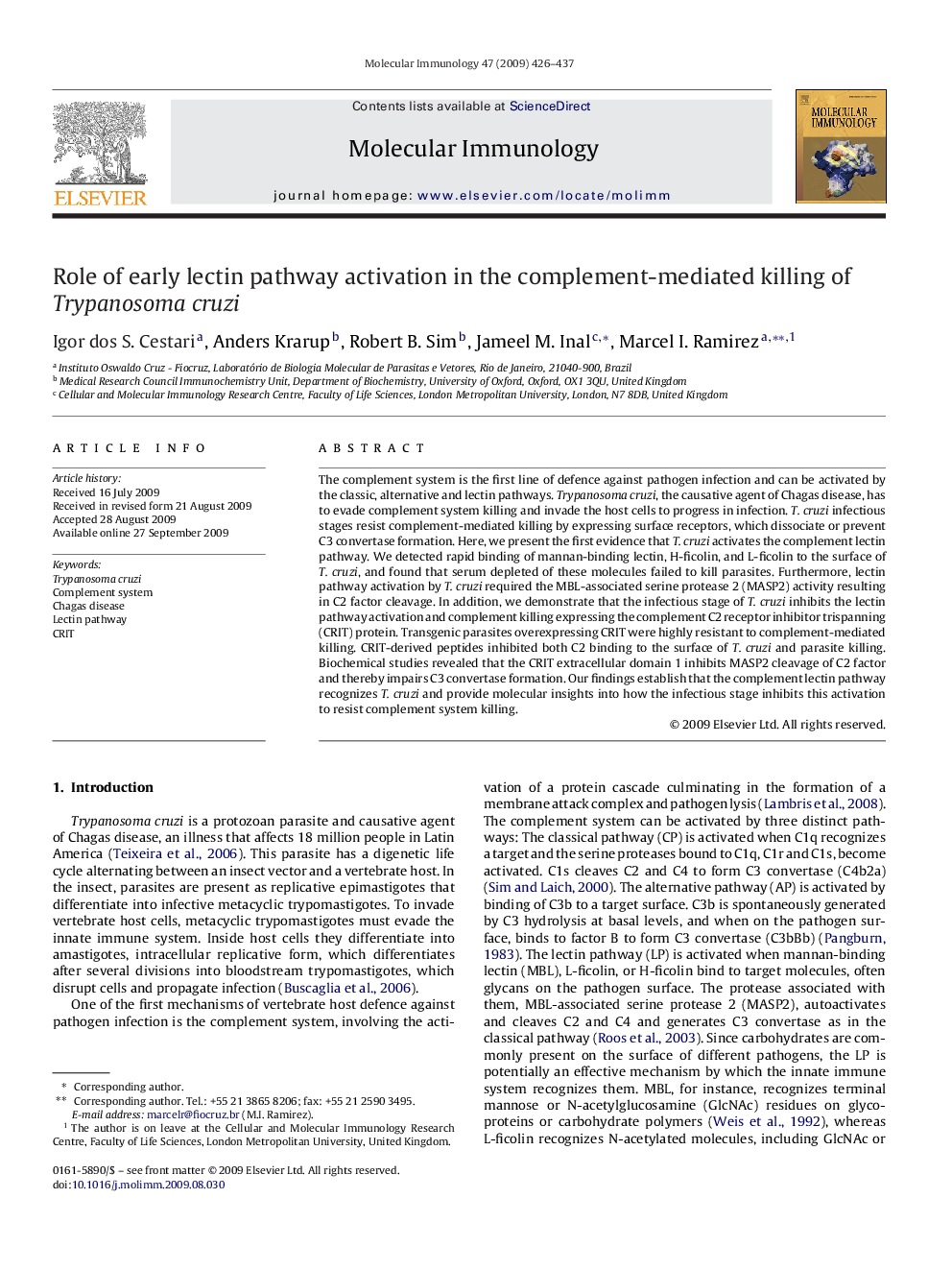| Article ID | Journal | Published Year | Pages | File Type |
|---|---|---|---|---|
| 5917616 | Molecular Immunology | 2009 | 12 Pages |
Abstract
The complement system is the first line of defence against pathogen infection and can be activated by the classic, alternative and lectin pathways. Trypanosoma cruzi, the causative agent of Chagas disease, has to evade complement system killing and invade the host cells to progress in infection. T. cruzi infectious stages resist complement-mediated killing by expressing surface receptors, which dissociate or prevent C3 convertase formation. Here, we present the first evidence that T. cruzi activates the complement lectin pathway. We detected rapid binding of mannan-binding lectin, H-ficolin, and L-ficolin to the surface of T. cruzi, and found that serum depleted of these molecules failed to kill parasites. Furthermore, lectin pathway activation by T. cruzi required the MBL-associated serine protease 2 (MASP2) activity resulting in C2 factor cleavage. In addition, we demonstrate that the infectious stage of T. cruzi inhibits the lectin pathway activation and complement killing expressing the complement C2 receptor inhibitor trispanning (CRIT) protein. Transgenic parasites overexpressing CRIT were highly resistant to complement-mediated killing. CRIT-derived peptides inhibited both C2 binding to the surface of T. cruzi and parasite killing. Biochemical studies revealed that the CRIT extracellular domain 1 inhibits MASP2 cleavage of C2 factor and thereby impairs C3 convertase formation. Our findings establish that the complement lectin pathway recognizes T. cruzi and provide molecular insights into how the infectious stage inhibits this activation to resist complement system killing.
Related Topics
Life Sciences
Biochemistry, Genetics and Molecular Biology
Molecular Biology
Authors
Igor dos S. Cestari, Anders Krarup, Robert B. Sim, Jameel M. Inal, Marcel I. Ramirez,
